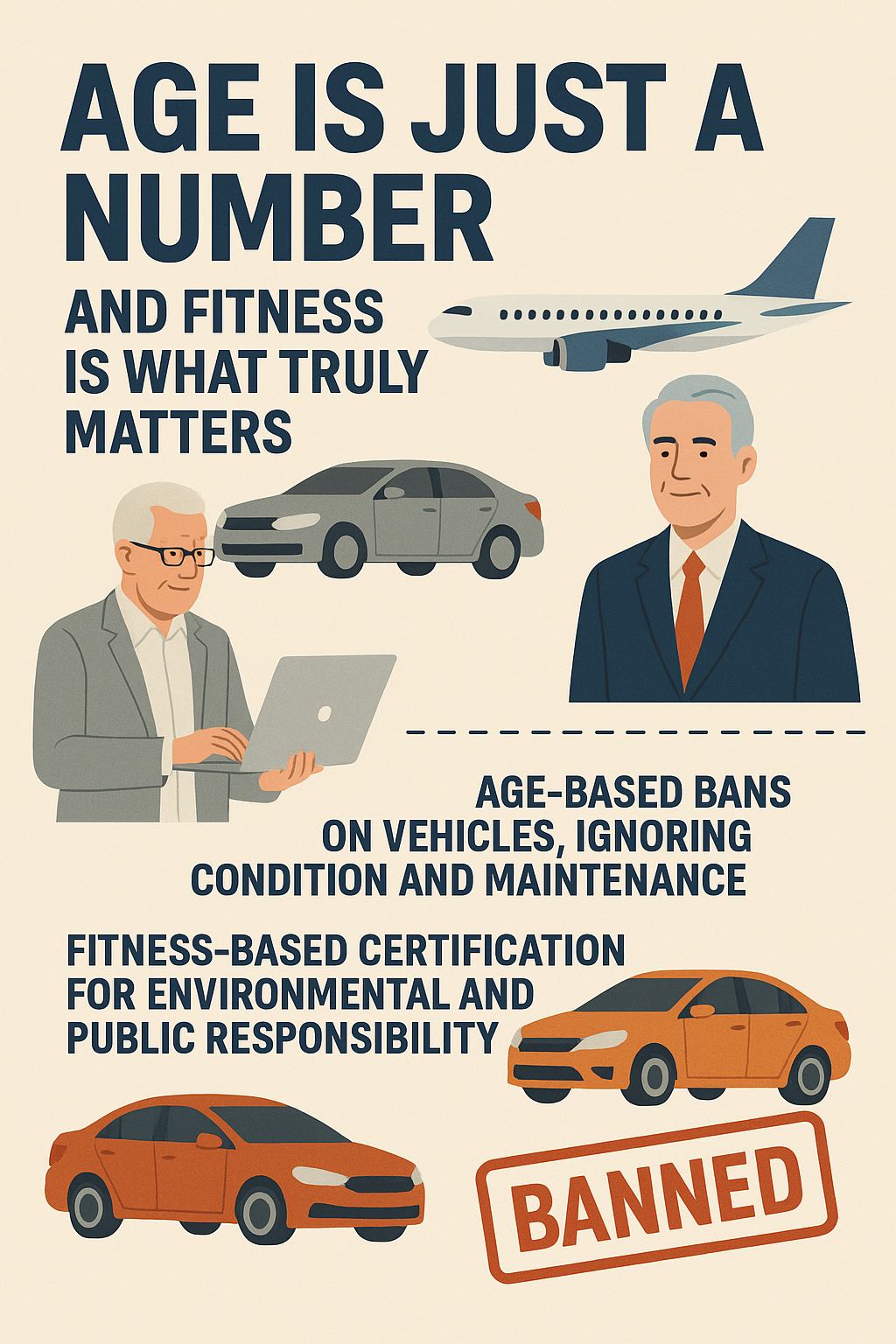In almost every field of human
endeavor, we acknowledge that age alone doesn't define value, performance,
or reliability. We understand that what truly matters is fitness,
capability, and continuous upkeep.
Take the case of doctors. Some of
the most respected medical professionals continue practicing well into their
70s or even 80s. As long as they are mentally alert, physically fit, and
their hands steady, they perform critical surgeries, offer life-saving
consultations, and share decades of experience that no young graduate can
replicate. We don’t ask for their age—we ask for their results.
Engineers and scientists, too, never
truly retire. They might step down from formal job roles in government or
corporates, but their intellectual capital doesn't expire. Their
experience, accumulated over years of tackling real-world challenges, continues
to be in demand—whether in consultancy, design, teaching, or mentoring.
Even in governance, former civil
servants, judges, defense officers, and subject experts are appointed to key
advisory or administrative roles after retirement. Why? Because their
knowledge is still relevant, their insights invaluable, and their fitness
allows them to contribute meaningfully.
Machines
Are Judged by Performance, Not Birthdate
Let’s shift focus from humans to
machines. Consider airplanes. Does anyone ask how old a Boeing 747 is before
boarding it? No. The airline and aviation authorities regularly check whether
the aircraft is airworthy. They inspect its systems, engines, and
airframe. If it passes the tests, it takes off—whether it’s 5 years old or 25.
The same goes for submarines, trains, and industrial machinery. Their service
life depends on maintenance, upgrades, and certified fitness, not merely
age.
So why do we think differently when
it comes to personal vehicles—especially in regions like New Delhi,
where blanket bans are imposed based purely on age?
A
Policy That Ignores Logic and Science
As per current regulations:
- Petrol vehicles are banned
after 15 years.
- Diesel vehicles are banned
after just 10 years.
This is done irrespective of
their actual condition, maintenance record, mileage, or pollution output. A
diesel car driven carefully, serviced regularly, and running perfectly clean
might be declared unfit simply because it crossed a date on the calendar.
Meanwhile, a newer but poorly maintained vehicle might continue to pollute more
than an older one.
Isn’t this a deeply flawed approach?
By this logic, we are saying that:
- All relationships must expire
after a certain time.
- All knowledge becomes invalid
after a certain date.
- And every vehicle becomes a
hazard just because it's reached a certain birthday.
Where is the nuance? Where is the
responsibility?
A
Call for Fitness-Based Certification
Instead of these age-based
blanket bans, what we need is a robust, transparent, and periodic
fitness certification system. Here's how it could work:
- After 10 years, vehicles
undergo fitness tests every year.
- Tests include emissions,
engine health, brake system, and noise levels.
- If the vehicle passes, it is
cleared to run for another year.
- Those that fail must be
repaired or scrapped as per norms.
This not only ensures environmental
protection but also promotes personal responsibility. Owners will be
encouraged to maintain their vehicles properly, knowing that age alone
won't end their usability.
It will also ease the financial
burden on middle-class families who cannot afford to replace a perfectly
functional car or bike just because a law assumes it’s no longer useful.
A
Balanced, Logical Approach
Let’s remember that climate
action and sustainable transport are critical. But blanket rules that ignore
context, usage, and condition do more harm than good. They encourage unnecessary
scrapping, increase manufacturing emissions (by pushing new vehicle
production), and penalize responsible owners.
It’s time we moved to a smarter,
more logical system—one that evaluates fitness, not age, whether for
people or for machines.
Because age is just a number,
and fitness is what truly matters.



Comments
There are no comments yet. Be the first to share your thoughts!